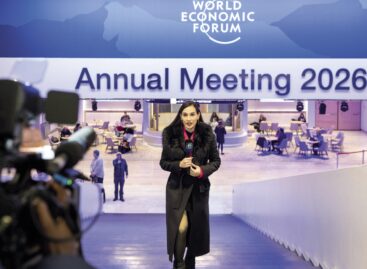Climate protection pays off for companies, yet according to a survey, they do not do enough for it
Climate protection initiatives bring greater financial benefits to seven out of ten companies than expected, yet the majority of companies do not reduce their emissions to an extent that could substantially mitigate the effects of global climate change, according to EY’s survey of more than 500 global companies.

(Photo: Pixabay)
In a summary sent to MTI on Tuesday, the international consulting firm explained: companies that take comprehensive climate protection measures are more than twice as likely to pay off their efforts financially than expected. The majority of surveyed companies, 93 percent, have publicly committed themselves to mitigating climate change, but at the same time, less than half of them, 42 percent, plan to reduce carbon dioxide emissions by at least 45 percent by 2030. Only 11 percent of the respondents set the goal of achieving net zero emissions, i.e. carbon neutral operation.
They would spend more to manage climate risks
According to the survey, decision-makers are mostly encouraged to invest in climate change by promoting business flexibility (59 percent), improving environmental protection and sustainability certification (57 percent), and meeting market expectations (56 percent). According to EY, it is encouraging that 61 percent of respondents plan to spend more next year to manage climate risks than this year. The research examining the companies’ climate protection measures, their effects, results and future possibilities was carried out between July and October. 506 corporate sustainability leaders from a variety of industries in 21 countries participated in the study. Respondents represented companies with more than $1 billion in annual revenue.
MTI
Related news
dm welcomes customers with stable prices and a superb price-value ratio
🎧 Hallgasd a cikket: Lejátszás Szünet Folytatás Leállítás Nyelv: Auto…
Read more >AI is also transforming taxation
🎧 Hallgasd a cikket: Lejátszás Szünet Folytatás Leállítás Nyelv: Auto…
Read more >Related news
How Coca-Cola plans to build more billion-dollar brands
🎧 Hallgasd a cikket: Lejátszás Szünet Folytatás Leállítás Nyelv: Auto…
Read more >







